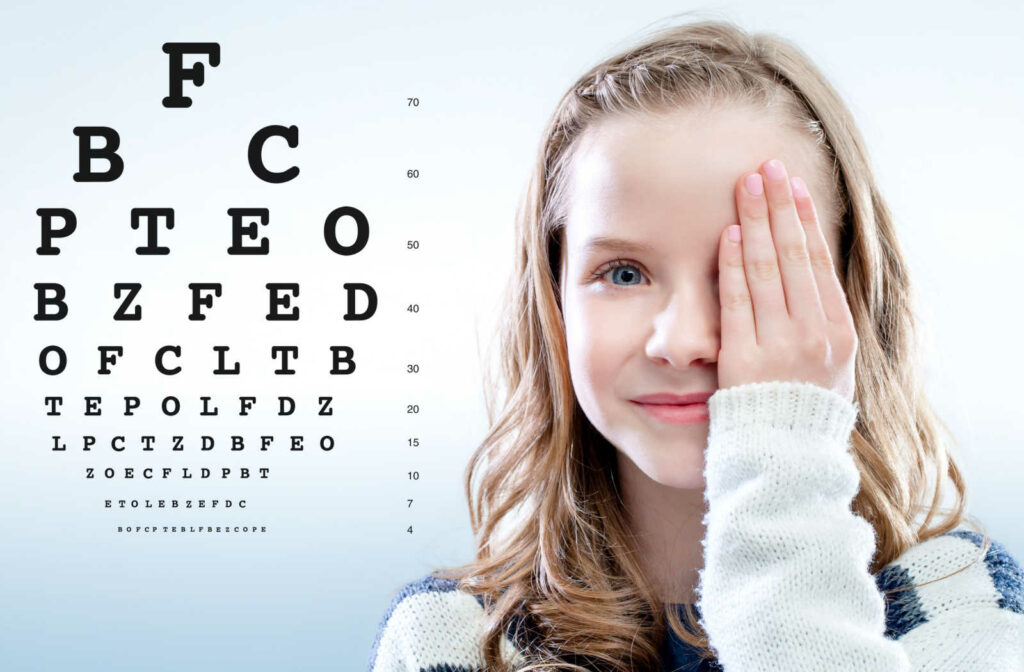Comprehensive eye exams are an important part of your healthcare plan.
Eye exams help you see clearly and comfortably throughout your life, as well as look for signs of ocular diseases and other medical conditions. An effective, comprehensive eye exam takes 40 minutes on average, and typically children’s exams take half as long.
At Avenue Optometry & Vision Therapy, we strive to provide you with the most comprehensive eye care possible.
What Should I Expect?
Eye exams can vary by patient as each patient is unique.
Comprehensive eye exams usually involve a base set of tests, but our optometrists can add or change the exam to address your individual needs. You should also expect to answer questions about your medical history.
The more information your optometrist has, the better they can care for your eyes.
You’ll complete some pre-testing assessments with an optician first, then you’ll see your optometrist for some additional testing, as well as update your prescription and review your exam results.
Lastly, your optometrist will go over the next steps with you. This may include new glasses or contact lenses, follow-up appointments or referrals, or simply rebooking for next year.
Eye Exam Tests
As we mentioned earlier, every eye exam can be unique, but some tests are performed on basically every patient. This is because these tests give us a clear foundation of your vision and ocular health.
Visual Acuity
Visual acuity refers to how clearly you can see. When you think of eye care, you probably think of the chart with letters. This is a visual acuity test.
This chart has letters in rows from top to bottom going from largest to smallest. Each eye is tested separately, and you may also be tested on reading the lines from various distances.
Refraction Assessment
When light enters the eye, it’s bent (refracted) onto the retina so the brain can receive images from the optic nerve. Irregularities in the cornea, lens, or eyeball can cause the light to bend improperly and make a patient’s vision appear blurry.
This is called a refractive error, and it refers to vision conditions like myopia (nearsightedness), hyperopia (farsightedness), and astigmatism. During an eye exam, your optometrist performs a refraction assessment to determine how severe your refractive error is.
Your optometrist will set you up on a small device with a variety of different lenses. By switching through the lenses, your doctor can find the right prescription for your eyes to correct the refractive error.
Additional Tests
You may also perform a colour vision test, glaucoma test, eye muscle movement test, or other tests. This depends on a number of factors, such as your age, medical history, risk, needs, and concerns.
You should also receive a retinal exam. There are many different ways to perform a retinal exam. The goal is to make sure your retinas are healthy and look for any signs of early disease.
Booking Your Appointment
On the top right side of your screen, click “Book Appointment” written just below our phone number.
If you are an existing patient, you can log into your patient portal from this screen. If you’re a new patient, or you’ve forgotten your account credentials, click “Book Now” just left of the login button.
In the top right-hand corner of this screen, you can click “Register” to sign up for an account. Alternatively, you can continue to book your eye exam using the calendar function on this screen.
Scroll down to finish filling out your information and click “Confirm” at the very bottom of your screen to schedule your eye exam. If this isn’t working for you, please give us a call.
When Was Your Last Eye Exam?
If you haven’t seen an optometrist in over a year, or if you can’t remember, it’s time to book an eye exam! Book online or give us a call.




